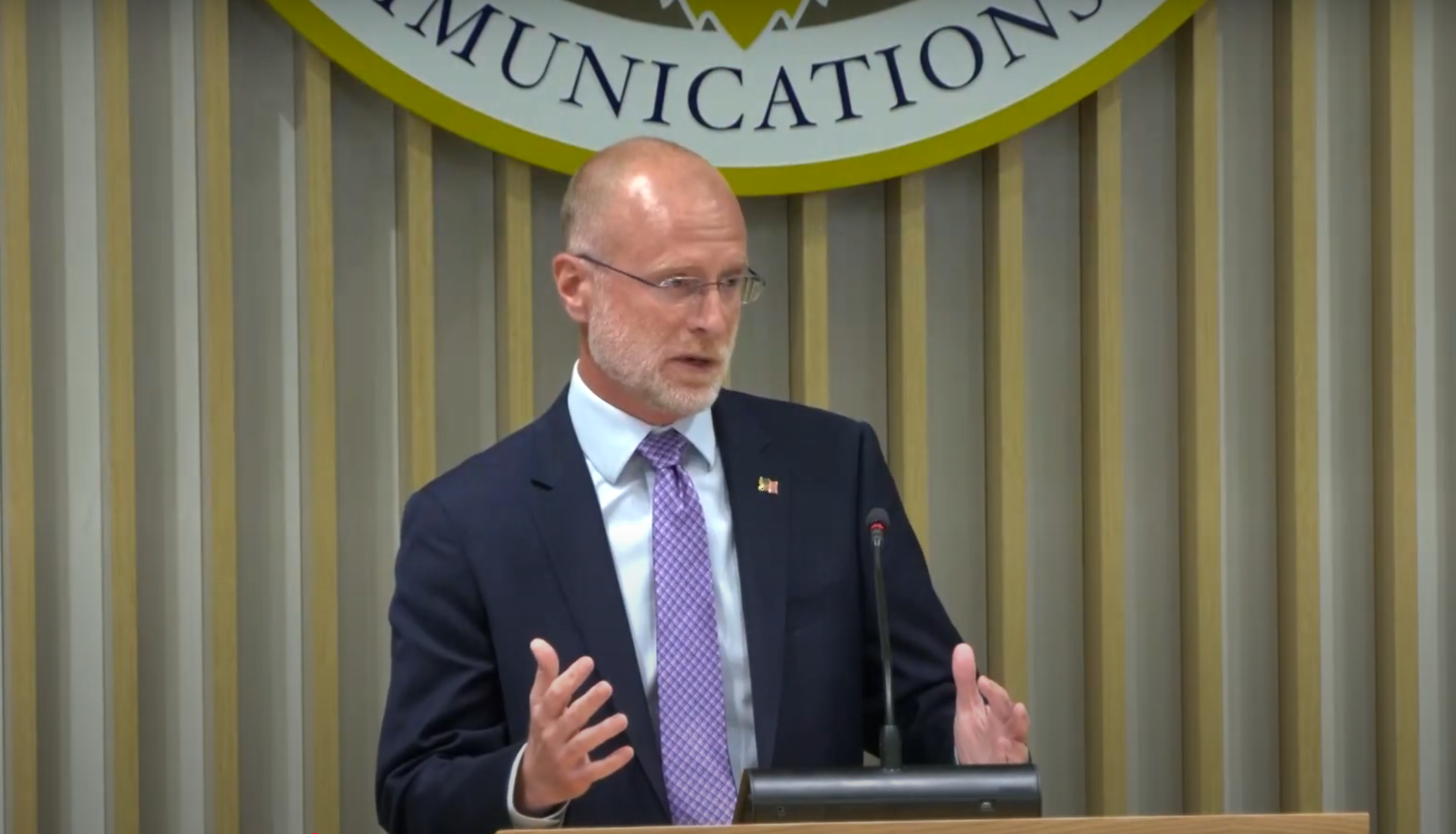Lawmakers Do Shut-off Shuffle
Berlin box plan weighed for U.S.
WASHINGTON
The onus of nailing down a hankered-for hard date for shutting down analog broadcast signals is coming down to converter boxes.
Lawmakers across the board have long speechified about a hard analog-shutdown date, but there is little consensus on what that date should be and how to get to it. The House Telecom subcommittee sent the Government Accountability Office to Berlin to study the analog shutdown in that city. The GAO subsequently reported that the key to Berlin's digital transition was "encouraging households to purchase set-top [analog-to-digital converter] boxes or digital televisions."
In Berlin, encouragement consisted of telling people their TVs would no longer receive broadcast signals as of August 2003 without a converter box. Around 160,000 of Berlin's TV households rely solely on over-the-air signals; the poorest received a subsidy to buy a converter. Berlin shut down analog signals 10 months after digital transmissions began.
U.S. lawmakers are flustered that eight years after digital broadcasting commenced here, analog shutdown appears to be nowhere in sight. But wir sind nicht Berliners. In all of Germany, television is primarily a public entity funded by a mandatory monthly fee, which is waived for welfare recipients and low-income households. Consequently, the logistics of providing converter-box subsidies in Berlin were built into the socioeconomic structure.
LESSONS FROM BERLIN
The FCC's Media Bureau has suggested using spectrum auction proceeds to generate the subsidy, but distribution would be up to Congress. At the lessons-from-Berlin hearing attended by a handful of lawmakers last month, the primary difference between the German capital and the United States became progressively clear, i.e., the United States has 60 times the number of television households and is 11 million times larger than Berlin.
Subcommittee Chairman Fred Upton (R-Mich.), asked hearing witnesses who should get the subsidy-low-income households, those relying only on over-the-air signals, or every household with a set not hooked up to cable or satellite.
Greg Schmidt, vice president and general counsel at LIN TV testified that Congress should subsidize converters for every household with an over-the-air set, which made Rep. Rick Boucher, (D-Va.) somewhat incredulous.
"Should owners of analog sets be held completely harmless?" he asked Schmidt.
Schmidt: "Yes."
Boucher: "The means test in Berlin [involved] those people eligible for welfare."
Schmidt: "We believe everyone should be eligible for a subsidy."
Boucher: "Your estimate of over-the-air sets-45 million-how reliable is that?"
Schmidt: "If anything, it's conservative. Video recorders are not included in that count."
The cheapest converter boxes available now are around $300, so Boucher figured a $100 subsidy would be necessary to cover all over-the-air sets in time to make a Dec. 31, 2006 analog shutdown-the date set forth in the '96 Telecom Act.
"At $100, you get $4.5 billion," he said. "We may feasibly not receive enough from auction to make the subsidy. Every time we try to estimate the proceeds of an auction, we are usually wrong... dramatically wrong."
Boucher's revelation was a departure on Capitol Hill, where estimates of spectrum auction proceeds more closely resemble budget deficit holes than actual precedent. The sale of licenses in Channels 54, 55 and 59, auctioned off in mid-2002, generated $145,467,590.
At those prices, the remaining analog TV spectrum in Channels 52-69 would bring in around $680 million. While such a straight-forward calculation doesn't account for certain geographic, economic and political factors (like a hard date for the eviction of broadcasters), the government's own estimate has fluctuated from $27 billion to $70 billion and recently settled at around $50 billion.
Proponents of a 2006 shutdown, including full Commerce Committee Chairman Joe Barton (R-Texas), believe that imposing the deadline will boost auction proceeds and drive down the cost of converter boxes.
Carl McGrath of Motorola testified at the hearing that manufacturers could get boxes down to $67 by 2007, if a hard date is imposed, and if there is sufficient demand.
The FCC Media Bureau plan anticipates the availability of $50 boxes by a proposed hard date of Jan. 1, 2009, when presumably fewer households will need one, given continued growth of cable and DBS, and additional sales of digital receivers.
Current estimates of households entirely dependent on over-the-air television range from 12 million to 15 million, and just who resides in these households is a mystery. The FCC has issued an inquiry on over-the-air households (MB Docket No. 04-210), for which comments were due Aug. 11.
There's a prevailing assumption that many such households are inhabited by lower-income elderly females, but not one was among the 31 parties who had filed comments on Docket 04-210 as of July 26. Most filers were telephone companies, itching to get their mitts on 700 MHz spectrum licenses. Replies on the first round of comments are due Sept. 7.
The professional video industry's #1 source for news, trends and product and tech information. Sign up below.
